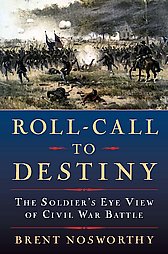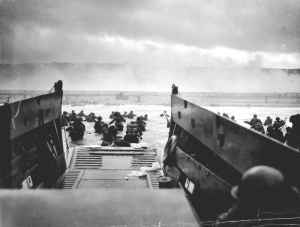[As a kind of celebration of Father's Day I want to highlight a series of letters from Soldeirstudies.org: The Civil War Letters of Charles and Kate Ramsay. But also, please visit the website SoldierStudies.org, we need help with volunteers, donations (letter transcripts), and soon we will have our paperwork for non-profit status and will be accepting monetary donations as well as government grants.]
Charles Ramsay was a private in the 44th Ohio Infantry Regiment. Ramsay was married to Kate, and together they were starting a family in Springfield, Ohio. Kate was expecting their first child when Charles left her in late September 1861. Immediately the two began writing letters to one another, faithfully, and sometimes on a daily basis. ‘
The 44th Ohio Infantry regiment was organized at Springfield, Ohio during September and October of 1861. The regiment was sent to Camp Platt, in West Virginia on October 14 where it soon began active service.
Kate Ramsay’s first letter to Charles Ramsay, October 19th 1861:
…Yes, my Charlie dear, I feel that I can now say go where duty calls & God be with you to bless & protect you & I shall trust to our Heavenly Ruler to restore you safely to me. Peace shall again spread her angel wings over the land. They say there are some fears of war all over the world. I hope not. I expect I shall have some sad lonesome hours as I have already felt the loss of your company but it is natural. I am like the Dove that lost its mate, wondering around from place to place looking for something, I hardly know what & at nights; O that is the trying time when I have to sleep alone. No Husband’s arms to repose in. I roll, toss & tumble from side to side but it will all be right by & by. If I can only hear often from you… [read more]
Charles wrote back on November 3rd, giving an update on his whereabouts and condition:
…We are now having such disagreeable weather that it rather gave me the blues and makes me a little homesick but I do not allow myself to give way at all to my feelings. I try to look at the brightest side and keep my spirits up (not, however, as some do by putting spirits down). There are a great many men very sick for to get home. Well, in this country with such weather as we have been having for the past few days, it is not to be wondered at confined as we are here. No excitement. The same thing over every day. How I should like to be at home with you today and attend church. I have not heard a sermon since I left home. I have attended the meetings in camp but I do not like our chaplain. He cannot preach. He is not much liked by the regiment… [read more]
On November 6th, Charles took up his pen:
My Dearest Wife,
Some days must be dark and dreary. This is one of them. It has been drizzling all day but until about noon it did not amount to much but since that time it has been raining steadily. As there was no practice this morning, Alick and I concluded that we would go out on an exploring expedition. I believe I mentioned in one of my letters a rock on top of the mountain that reached above the tree tops. We concluded that we would climb to the top of it. It took some hard work but we succeeded in making it and had a splendid sight to pay us for our trouble. We could see for miles around, mountain after mountain across in the distance. We could see for miles up the Kanawha. We cut our names in the rock. There were several names on it. One young lady had her initials there – a Miss A. F. with the date 1859. [read]
In her next letter, Kate wrote to Charles that she was starting to dread her coming ordeal with labor and that she was already experiencing discomfort. Charles wrote back to her:
…I know, my darling, that you will have to suffer and as the time draws nigher, day by day. I am getting more uneasy in regard to it and wish that it was over. You must keep me informed of your situation for I shall feel very uneasy until I hear that all is over and all well. My prayer to God is that you may pass safely through and that you and our darling may be spared me to make happy my heart.
I echo the sentiment “Oh, that the war was over.” How many hearts that are now filled with sorrow would then be filled with joy? I look forward to the time when I shall be allowed to clasp my arms once more wound my love and feel that we are to separate no more at least for so long a period as this present separation I fear shall be…[read more]
Charles had not received a letter from his dear wife for some time, then finally it arrives, dated November 15th, she has a series of entries starting with the 12th:
Thursday eve Nov 14th
Yes my dear, tis true as you said “Some days must be dark and dreary.” It has rained all day making it very gloomy & lonesome to me. Father went to see Mr. Foose today. He said not one of the Band were to get a cent. I am sorry for Mary Watt’s sake. James Tarbers was taken on the street with bleeding at the lungs but is better now. I wrote a short hurried note to you and put it in the pocket of the vest Ann put in Hez’s boot. I suppose you have it.
Friday eve Nov 15th
This has been a very wintery day, snowing, raining and electing times about and then the sun would show itself a few minutes and then rain again. Before it began, Mother Ramsay came up and took dinner and we sent to the office for Father. They were si lively and seemed to enjoy themselves so much. It made me feel so good. Mother R. told me she knew I would have a boy. I said I should be pleased if it was for your sake for my every thought was for you and I know you wanted one and she said she never saw anyone hide it so much as I do and show so little being so near the time. If I was like some, I would go to the last minute but I don’t intend any one should talk about m,e while you are gone if I can help it… [read more]
Charles in his next letter describes to Kate a terrible accident:
…There was a most deplorable accident happened this morning which has cast a gloom over the whole camp. Captain Bell and eleven of his men were crossing the river in a skiff to relieve the pickets on the other side of the river when they were run into by a steamboat and the boat capsized and the Captain with seven of his men were drowned. An uncle of one of the members of the band was among the number drowned. A great deal of censure is placed upon the captain of the boat by some. Others say that he was not to blame and that he did all in his power to save the men. The Captain swam nearly a quarter of a mile and could be heard calling for help. The river is high and the current was so swift that he could not make the shore. The last word from Captain Bell was “help men for God’s sake!” He immediately sank to rise no more. He was one of the best Captains in the regiment and was liked by all. Their bodies have not yet been recovered. It is singular but the only men that have been lost from this regiment have been drown. Ten have perished in that way. One in Cincinnati and two here before the seven this morning. I have often thought that there should have been better arrangements for crossing the river than by the small boats. Whole companies have to be carried across in one small boat every day. The Captain should not have started out when the boat was so close . It was coming down the river and of course could not stop or avoid the boat… [read more]
On the same Day Kate penned her next letter to Charles:
Sabbath evening…I did not go to church today but it has been very pleasant. O My Dear Sweet Husband, this quiet Sabbath I feel well and happy. My heart is full of joy and thankfulness for the kindness Heaven sheds upon you and me each day as dew upon flowers causing us to live. I sometimes feel that I really live on your love. I know I could not live without it. Often while sitting alone I find myself smiling at the thought of our happiness together with our dear little one. Mrs. Rosser says O how sweet it is to be called Ma but mine died just as it began to say Ma & the tears started to her eyes. Won’t Hez and Will laugh when you tell them they are Uncles and you Pa. I feel glad it is to be so. If you are only spared to return to me. God Bless and protect you that you may is my prayer. Do you remember JK Morrel when speaking of winter or age? He says Life at the longest is but a bubble that bursts as soon as it is rounded. [read more]
As the year was coming to a close Charles learned that he would not be able to go home on furlough as he had hoped. To spend the holidays away from his wife seemed unbearable. Then a letter arrived, dated December 5th:
Saturday Morning.
O My Dear Darling rejoyce with me for all is over. Our little soldier boy is 3 hours old. You may know I feel pretty well in bed to be able to write while laying. O but I did suffer! It was born 4 1/2 o’clock this morning but I am tired and last stop…I think the lode weighs 10 pounds, it is so big!
Your Wife (Kate Ramsay)
P.S. Mother R says she never saw such a brave soldier as I was while in pain. [read]
It took over a week for news to reach Charles that he was the father of a healthy baby boy, and that his dear wife managed through labor without serious consequence.
My Darling Wife,
You cannot imagine my joy upon receiving your letter this morning. I had heard through a letter from Howard John to brother Hez that our boy had been born but he did not say how you were getting along or anything about your condition. Of course I was anything but contented with such indefinite word. I was very uneasy and anxious to get word from home so as to know your condition, whether you was getting along well or not and of course when I received your letter this morning with the postscripts written by your own dear self so soon after our darling was born, I could not help but rejoice for I could not but conclude from that that you were getting along finely and oh how thankful was I for that blessing. Yes, my darling, I did rejoice with you and oh how much did I wish to be with you but it was no use wishing for it would do no good. I tried my best to get a furlough but I could not succeed consequently I shall have to wait an indefinite period before I shall have the pleasure of seeing you and my boy. I am in hopes that I shall have that pleasure before the winter is over… [read more]





 My grandfather was a WW2 veteran, so to all those who took the beach or gave their life doing so, we are because of you! To one of our greatest generations, I salute you.
My grandfather was a WW2 veteran, so to all those who took the beach or gave their life doing so, we are because of you! To one of our greatest generations, I salute you. As most of you know, I refrain from getting involved in politics as much as possible save one issue: energy. Please consider the following:
As most of you know, I refrain from getting involved in politics as much as possible save one issue: energy. Please consider the following: